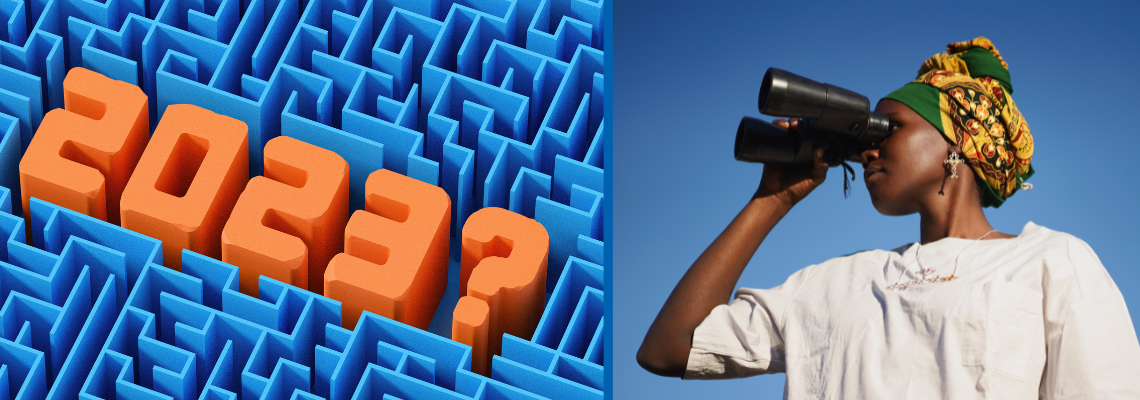5 Global Water Reuse Projects to Watch in 2023
There is an immense potential for water recycling and reuse in many parts of the world, but these projects often require significant financial resources, infrastructure and backing from local communities. Fortunately, there are some truly remarkable projects currently underway that are paving the way for greater water reuse around the world. Here are five global water reuse projects to watch in 2023.
Namibia Water Sector Support Programme
Namibia has announced it is going ahead with its second direct potable reuse project in the face of drought.
It has received two grants from Kreditanstalt für Wiederaufbau (KfW), the German development agency, to strengthen its water supply and finance the Namibia Water Sector Support Programme (NWSSP), which is also funded by the African Development Bank.
The state-owned Namibia Water Corporation, NamWater, will implement the project, which will increase the supply of drinking water from the reclaimed water plants in Windhoek to 50 per cent. Currently, the Goreangab Water Reclamation Plant (DPR 1), commissioned in the 1990s, supplies 25 per cent of the water consumed in the Namibian capital.
The NWSSP includes the extension of Rundu’s water supply systems to improve the quality, safety and sustainability of water supply services in the drought-stricken southern African country.
The Pure Water Project in LA
A proposed project in Southern California will take cleaned wastewater and purify it to produce over 681,000 m3/day of water, enough to serve more than 500,000 homes. This will make it one of the largest water recycling facilities in the world. Purified water from the facility would be delivered through up to 60 miles of new pipelines to the region’s groundwater basins, industrial facilities and two of Metropolitan’s water treatment plants.
The Pure Water Southern California programme is currently under environmental review. The review process will see the Metropolitan and the Los Angeles County Sanitation Districts working to understand the project’s potential impacts to communities and the environment. It is expected to receive final EIR water Certification in early 2024.
Faure Water Treatment Plant, Cape Town
Cape Town says it is revolutionising wastewater reuse with a cutting-edge facility capable of producing up to 100,000 m3/day of water when it starts operating in 2027.
At its water plant in Faure, wastewater will be piped to the freshwater scheme, where it will undergo a stringent purification process. The process begins with ozonation to break down organic substances and destroy germs. Then biologically activated carbon filtration removes particles and biodegradable organics followed by traditional carbon adsorption which eliminates non-biodegradables on an even smaller scale. Ultrafiltration then takes it one step further removing pathogens. Finally ultraviolet advanced oxidation uses intense lighting combined with oxidants to target micro-organic compounds like pharmaceuticals for total purification success.
The city has announced it is currently inviting tenders to build the new water scheme.
El Paso Water in Texas
El Paso Water (EP Water) in Texas has received a $20 million grant from the Bureau of Reclamation for its innovative water reuse facility, calling it “direct to distribution”.
The funding will be used to construct an Advanced Water Purification system which could produce over 45,000m3/day of fresh drinking water by transforming treated wastewater into potable reuse
Tanya Trujillo, assistant secretary for water and science for the Department of the Interior praised this innovative step towards sustainable use practices saying: "It is one-of-a kind."
EPWater has developed an innovative multistage treatment process involving membrane filtration, reverse osmosis, ultraviolet disinfection with advanced oxidation, as well as granular activated carbon purification following its pilot-testing in 2016.
Construction of the facility, which is designed by Carollo Engineering, is scheduled to begin in late 2023.
NEOM, Saudi Arabia
Water and electricity supplier ENOWA’s Al-Bada Water Recycling Plant in NEOM, Saudi Arabia is now fully functional.
NEOM is a new smart city in the north-west of Saudi Arabia founded on what it says are “the principles of environmental conservation”.
The recycling plant collects raw sewage from across the smart city and treats it to then be used for irrigation and construction activities.
ENOWA said that the plant is one of the few facilities in Saudi Arabia that provides 100 per cent of the treated water for beneficial use to generate revenue. It said it is a rare opportunity to create a new circular water system to exponentially lower the impact of climate change to the region and hopefully to the world.
Share your water technology stories with us
Do you have an innovation, research results or an other interesting topic you would like to share with the international water technology industry? The Aquatech website and social media channels are a great platform to showcase your stories!
Please contact our Sr Brand Marketing Manager Annelie Koomen.
Are you an Aquatech exhibitor?
Make sure you add your latest press releases to your Company Profile in the Exhibitor Portal for free exposure.
We promise never to send you spam and you can unsubscribe at any time!
